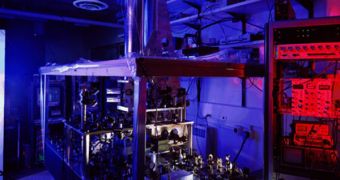The predestination paradox is just one of the many paradoxes that are theoretically possible in time travel, and it is highly controversial because it grips people's control of their own lives from their hands and places it with a higher power. Basically, what the principle says is that people who would potentially travel back in time would have no way of changing a situation, because if they got there it would mean that they were destined to. This means that the very existence of the future would depend on them going back in the past.
One good example of a predestination paradox is someone traveling back in time to save a loved one from a car accident, only to find themselves driving the car that killed the family member or friend. This type of occurrence gave birth to a new name for this paradox, which is often called a causal loop or a closed time loop. If, hypothetically speaking, people find themselves in this situation, then they are forced to repeat it over and over again, thus remaining literally trapped in a loop.
This paradox completely opposes the grandfather paradox, which states that if someone goes back in time and kills his or her grandfather, then the entire event would be impossible, as he or she wouldn't have been born. Some physicists believe that this type of event could cause a fracture in the space-time continuum itself and trigger a re-arrangement of the destroyed time line. In science fiction movies, this happens via time ripples, which travel the world at the blink of an eye and gradually restore history.
The Novikov self-consistency principle states that contradictory causal loops cannot form in a time line, but that consistent ones can, meaning that if two people were to return for different actions that have no connection to each other, they could both be trapped in their own loops. However, Novikov says that this doesn't hold true if the two interact with each other.
From a religious standpoint, the predestination paradox is the most difficult to accept, because it implies that humans are not in control of their own lives and existence, but, rather, are subjected to the whims of a higher power, who designed a grander plan. If this theoretical situation were to come true, then even skeptics would have to admit at least the existence of faith, if not that of a god.

 14 DAY TRIAL //
14 DAY TRIAL //